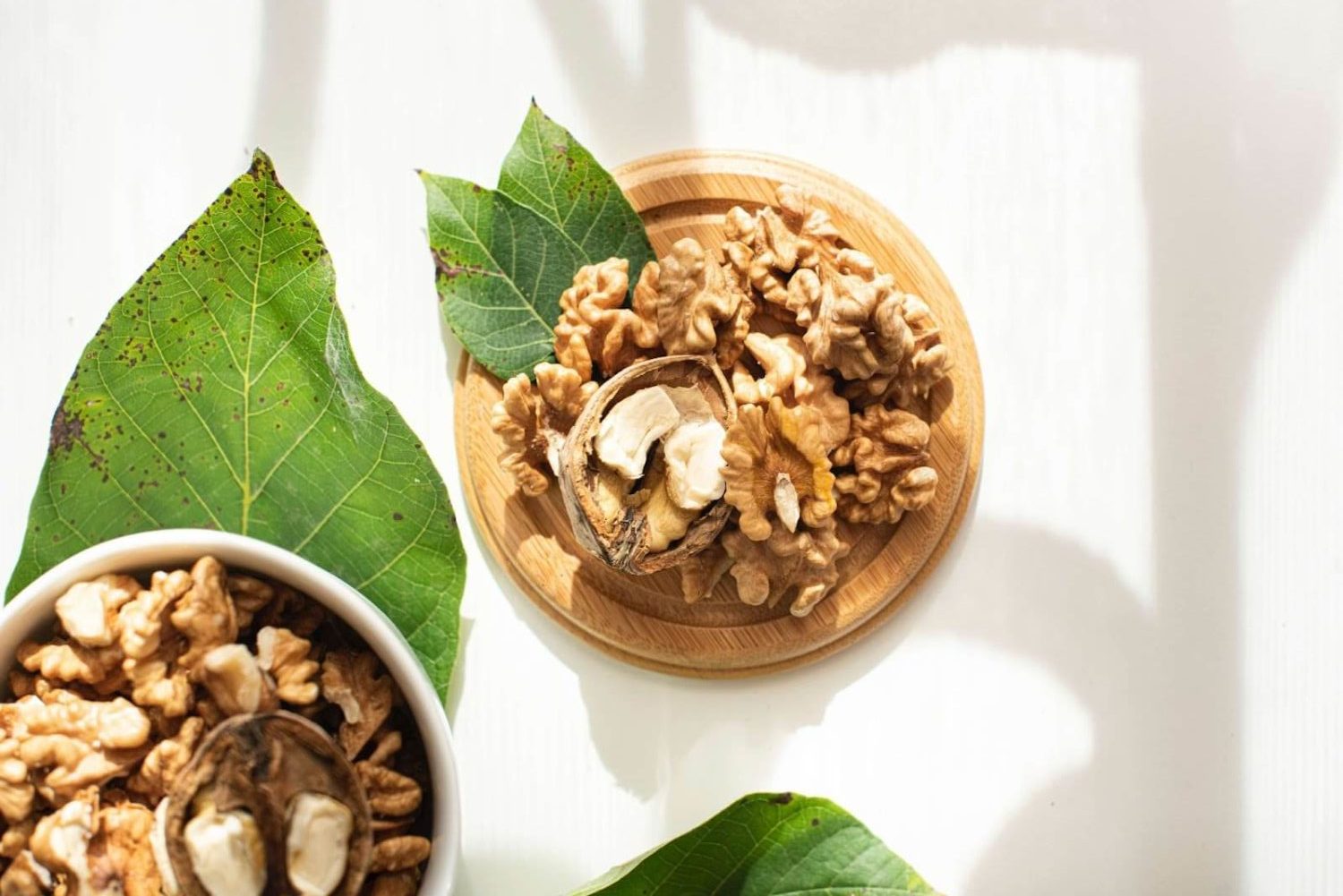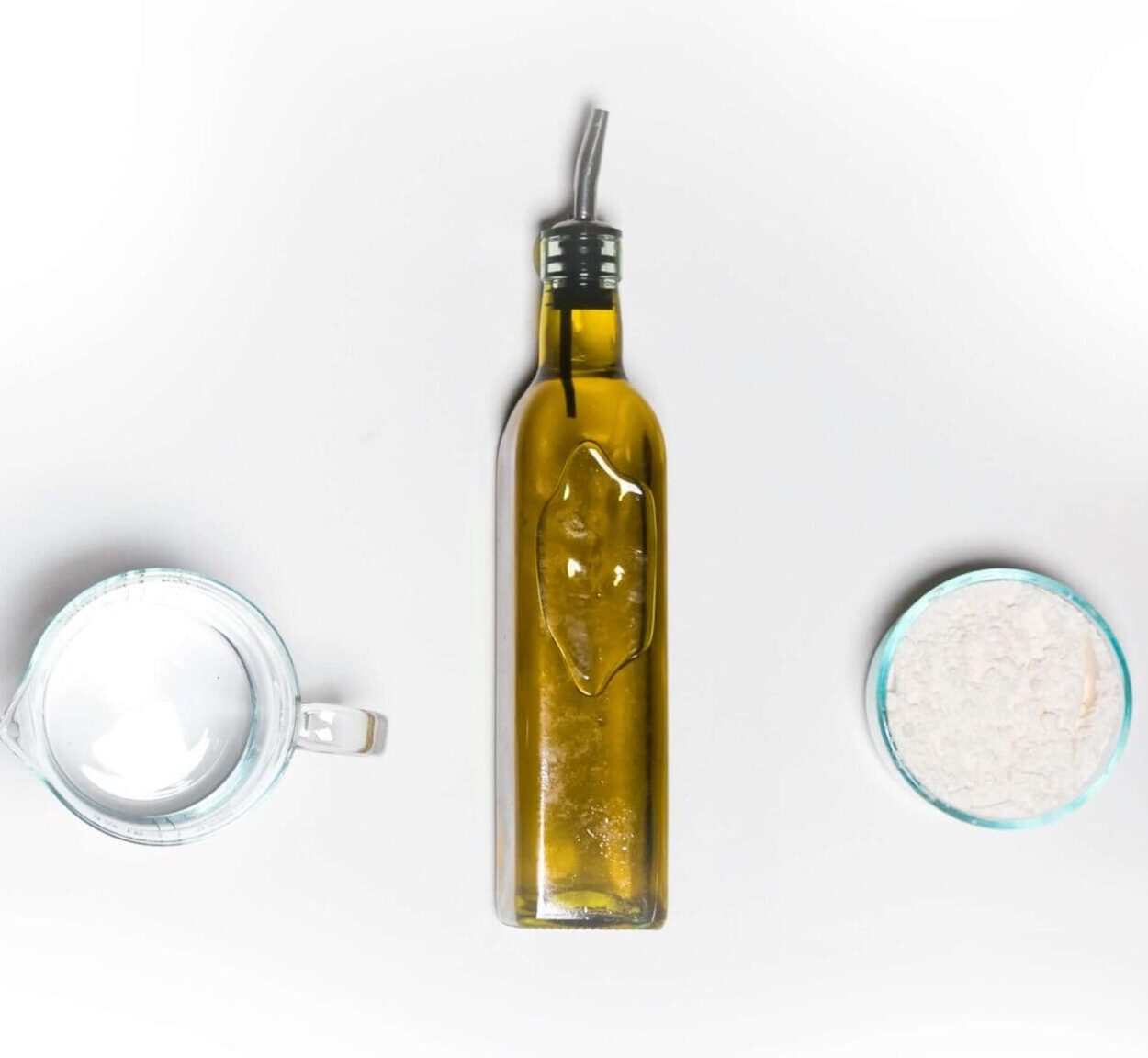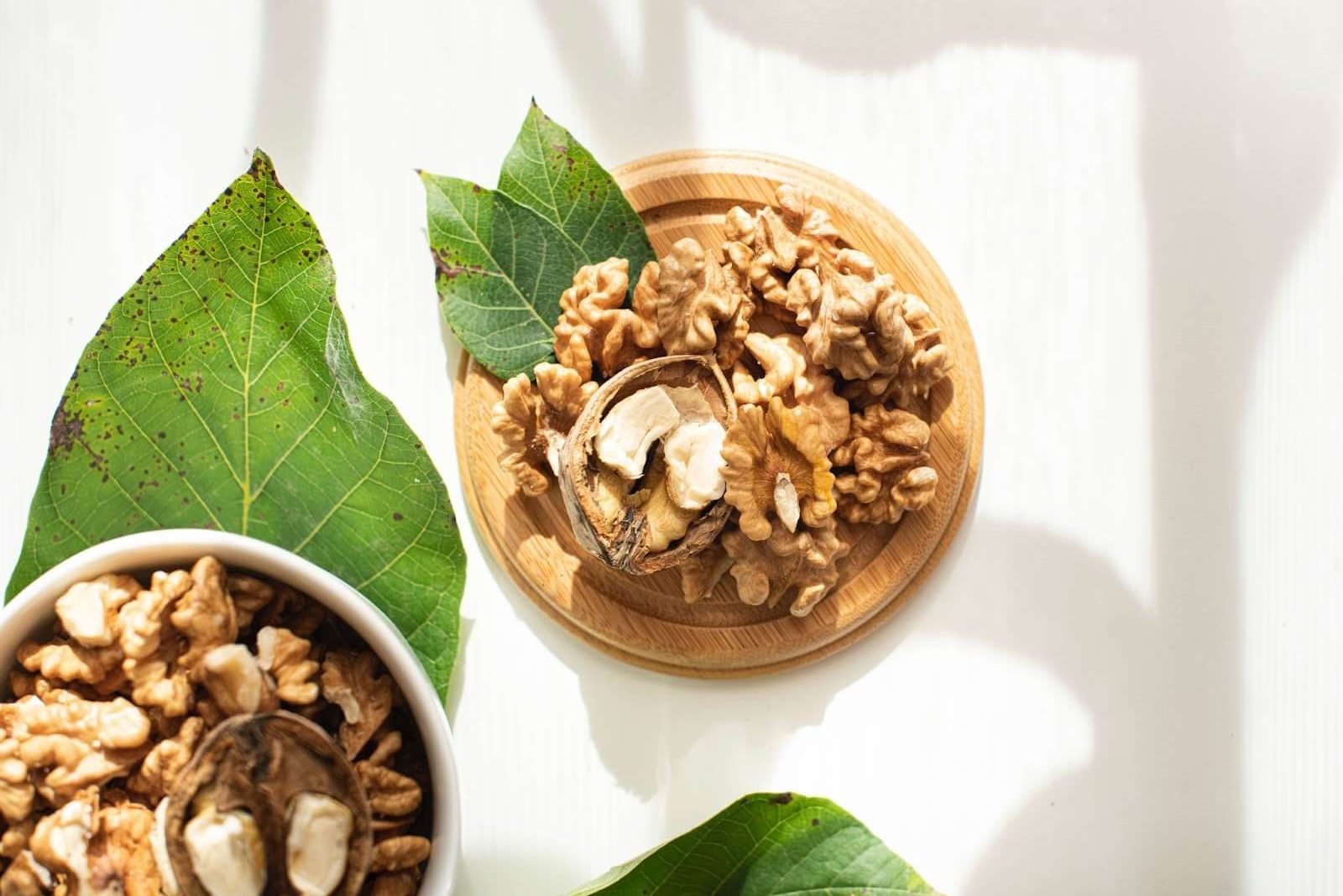
Hello friends! If you are anything like me, you love to munch on nuts thrown into meals or alone as a snack. Nuts are a POWERHOUSE of nutrition, and different kinds of nuts provide different benefits. As your cancer dietitian, I am all about encouraging you to add healthy fats and fiber to your diet. Today we are going to be looking at walnuts, specifically, and some of the benefits that make it such a potent anti-cancer food.
Background
These nuts have been consumed for thousands of years and over the past few decades, they have been studied extensively when it comes to cancer prevention. Research is showing that the benefits from walnuts are likely a result of all the wonderful plant compounds working together. In other words, you likely get more benefits by eating walnuts in their whole food form than you would by taking isolated forms of the different plant chemicals.
Walnut Nutrition
Nutrients in ¼ cup of walnuts
- Calories: 190
- Total Fat: 18 g (23%)
- Saturated fat: 1.5 g (8%)
- Dietary Fiber: 2 g (7%)
- Protein: 4 g
- Magnesium: 39.5 mg (9%)
Healthy Fats
At a glance, walnuts are mostly made up of protein and fat. Although they are a high calorie food, this does not mean that they should be avoided. Incorporating healthy fats into your diet can actually help you absorb fat-soluble nutrients and add that satisfaction factor to your meals and snacks. Yum!
Benefits of Walnuts
Omega-3 Fatty Acids
Most of the fats in walnuts are polyunsaturated fats, which in modest amounts can be heart healthy. Furthermore, walnuts are also good sources of alpha-linolenic fatty acids (ALA) which are anti-inflammatory fats known as omega-3s! Other sources of omega-3s include fatty fish like salmon, trout, and other plant sources such as chia, flaxseed, and edamame.
Omega-3 Adequate Intake
The adequate intake for omega-3s in the ALA form is 1.1 grams for women and 1.6 grams for men. One serving of walnuts (¼ cup) provides roughly 2.57 grams of ALA omega-3s!
Omega-3 Health Benefits
Omega-3s may improve cardiovascular health by lowering blood pressure, lowering triglycerides, and increasing the good cholesterol! Although long term human studies are lacking, some data suggests that omega-3s could potentially reduce risk for liver, colon, and breast cancer. I caution against supplementing since the results are mixed when looking at omega-3 supplements in human trials. For safety, always talk to your doctor before starting a supplement since it can interfere with your treatment!
Ellagitannins
Plant chemicals found in walnuts known as ellagitannins (a type of tannin) are broken down in the digestive tract to form compounds that act as antioxidants in the body and regulate expression of oncogenes and cell signaling. Remember that antioxidants reduce damage to cells and DNA by neutralizing harmful free radicals! Unfortunately, we are missing long term human studies analyzing these compounds, especially in walnuts.
Animal and cell studies, however, suggest that ellagitannins could potentially reduce the risk of breast, prostate, and colon cancer! Although animal and cell studies are not the same as human studies, they can still be useful in guiding further research! In the meantime, adding a serving of walnuts is not going to hurt, unless of course you’re allergic!
Fiber
Did you know that less than 10% of Americans meet their recommended fiber intake? Fortunately, walnuts provide about 2 grams of dietary fiber per serving! This is roughly 7% of the daily value, which is not a large amount, but it adds up! According to the American Institute for Cancer Research, for every 10-gram increase in fiber, there is a 7% reduced risk for colorectal cancer!
Gamma Tocopherol
This form of vitamin E has been shown to reduce breast and prostate cancer in animals and cells by acting as a strong antioxidant!
Melatonin
Melatonin is found in a few foods such as walnuts, eggs, milk, mushroom, and cherries. This hormone is known for regulating circadian rhythms, but it also has been shown to reduce cancer risk in both cells and animals through different mechanisms, including increasing antioxidant activity!
Adding Walnuts to Your Diet
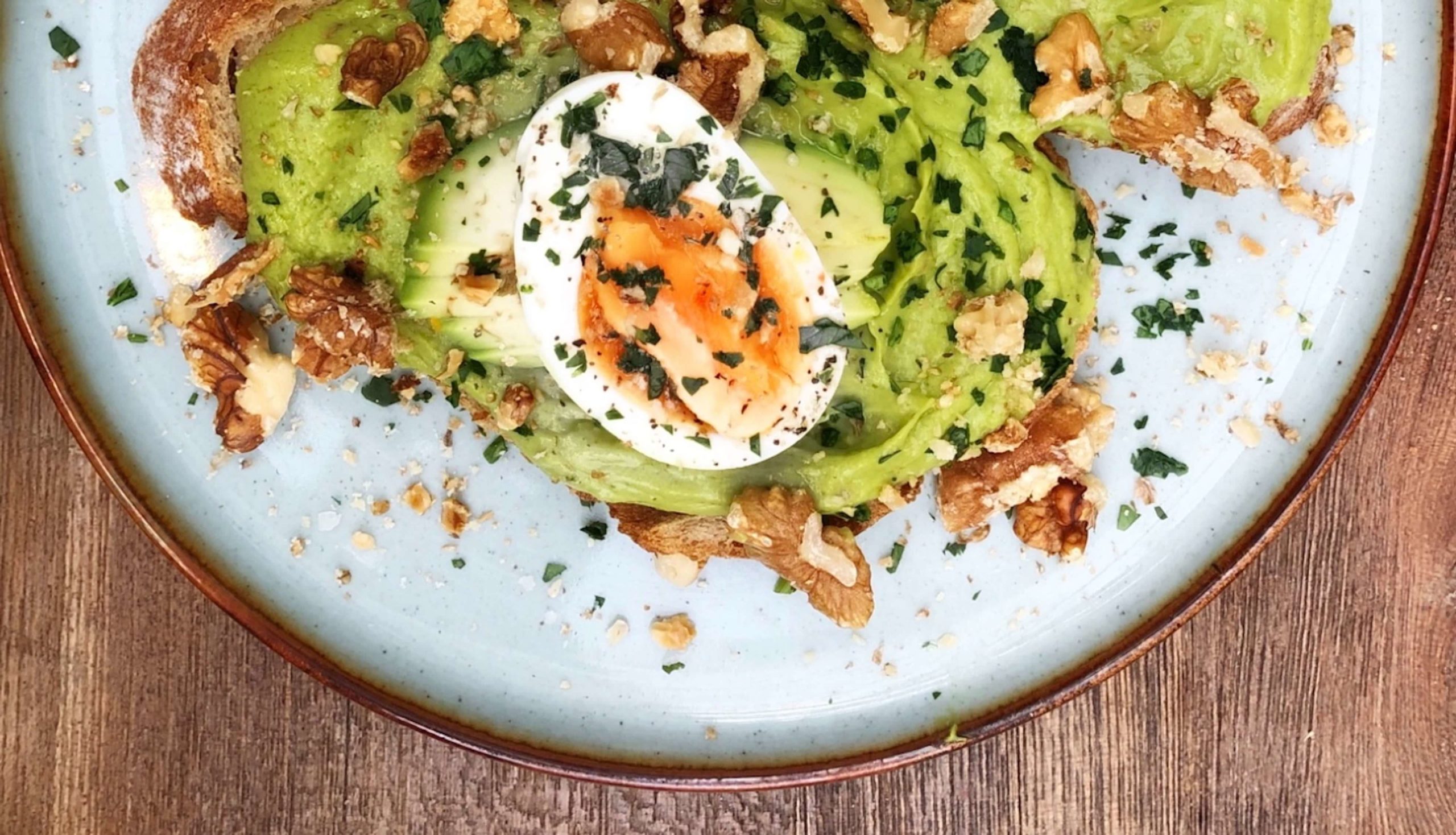
There are so many ways to enjoy these nuts as part of a cancer-prevention lifestyle.
- Just as they are! Enjoy a small handful for a compact, nutritious, and filling snack when you are in a rush.
- Add them to your yogurt, cereal, oatmeal, and chia pudding! The possibilities are really endless.
- Throw them into baked goods like muffins, breads, and cookies!
- Give your salad some crunch with a serving of walnuts!
- Make a power mix using dried cranberries or raisins, some low sugar whole grain cereal, walnuts, and some dark chocolate chips.
- Got a giant batch? Blend up some homemade walnut butter to use for baking, salad dressings, sandwiches, and to drizzle on anything and everything!
- Try making walnut pesto!
Chopped Greens Walnut Salad
I don’t know about you, but I am all about quick and easy meals I can throw together, using whatever I have in my fridge. That’s why this recipe is kind of like choosing your own adventure with alternatives for different ingredients. I acknowledge that everyone is different when it comes to preference, kitchen skills, and also time availability. Try the recipe and make changes so it works for you! Don’t have the entire head of cabbage or the time/energy? Pick up some coleslaw mix from the store. To chop or not to chop? It’s up to you!
You can enjoy this as a side or top with some chicken or chickpeas as your protein for a whole meal!
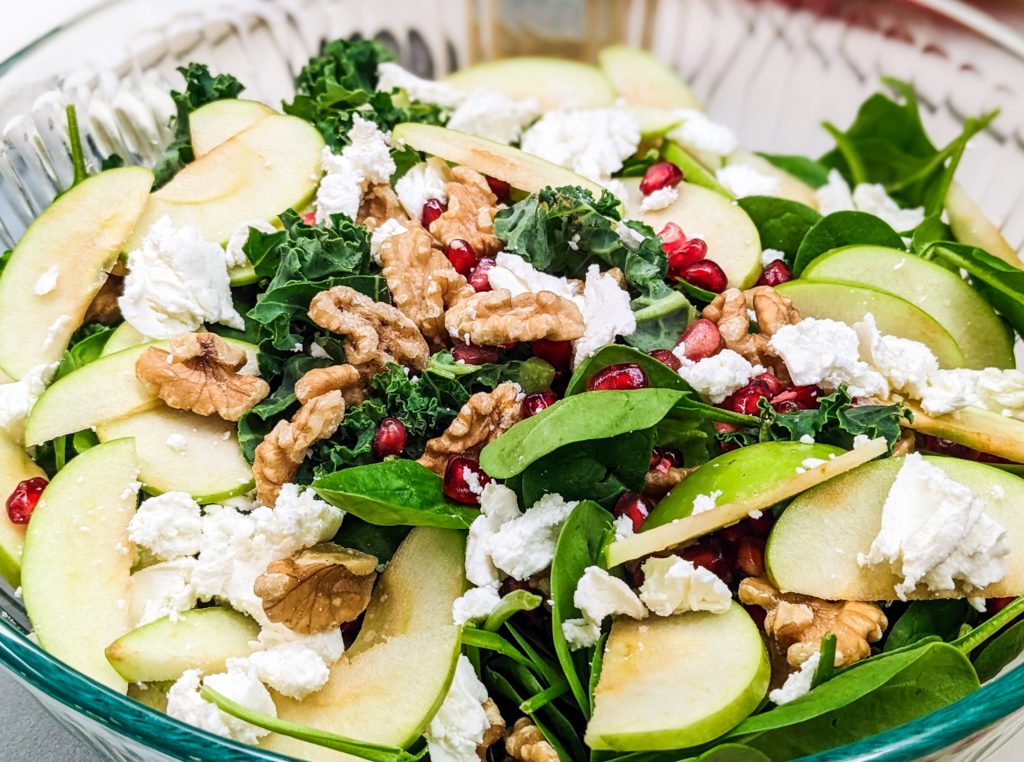
Ingredients
- 4 ½ cups of any green you like (I like a mix of kale and chopped cabbage or brussels sprouts)
- 1 Fuji or Gala apple, peeled, cored and finely chopped
- 1/4 cup of pomegranate seeds (can sub for 2 tbsp of dried cranberries)
- 1/4 cup goat cheese crumbles
- 1/2 cup chopped walnuts
- 1/8 tsp. kosher salt
- 1/8 tsp. freshly ground pepper
- 1 tbsp lemon juice or white wine vinegar
- 2 Tbsp. extra-virgin olive oil
- 2 tsp of dijon mustard
- 1-2 tsp of honey or maple syrup
- ½ tsp of parsley, dried
Instructions
- Toast your walnuts by placing them on a pan on medium heat (no oil needed) and stirring them around until they are fragrant, about 5 minutes. Be careful not to burn them! Once they are ready, remove from heat and set aside to allow them to cool.
- In a small jar or bowl, make your dressing by mixing together your lemon juice/vinegar, salt, pepper, parsley, honey, Dijon mustard, and olive oil.
- Prepare your greens and add to a bowl. If you are using Brussels sprouts, cabbage, or kale, add half of your dressing to your greens and using CLEAN hands, massage your greens by grabbing a handful of greens and squeezing, repeating this step until the greens are slightly darker and look more wilted. If you are using spinach or lettuce, this isn’t necessary. For these greens, a simple toss will do the trick.
- Add your apples, pomegranate seeds, and top with your (now cooled) walnuts and add the remainder of your dressing. Allow to sit for 1 hour before serving to let the flavors combine. Once ready, stir again, top with your goat cheese, and enjoy!
For the anti-walnut readers . . .
Not the biggest fan of walnuts? That’s okay. A combined analysis of several studies showed a 15% decrease in cancer risk among those who enjoyed a serving of nuts, daily! Snack on pistachios, almonds, peanuts, pecans, Brazil nuts, and more to get the different benefits each different nut provides!
Additional Resources
Want to check out even more recipes that include nutritious foods for a cancer prevention lifestyle? Click here to check out my shop! I even have a dessert book, perfect for those readers with a sweet tooth!
Feeling confused about what to do to support yourself during cancer treatment/prevention? DM me over on instagram to talk about coaching options!
References
- FoodData Central Search Results: Nuts, Walnuts, English. FoodData Central. https://fdc.nal.usda.gov/fdc-app.html#/food-details/170187/nutrients. Published April 1, 2019. Accessed February 8, 2023.
- Haddad EH, Gaban-Chong N, Oda K, Sabaté J. Effect of a walnut meal on postprandial oxidative stress and antioxidants in healthy individuals. Nutr J. 2014;13(1). doi:10.1186/1475-2891-13-4
- Office of dietary supplements – omega-3 fatty acids. NIH Office of Dietary Supplements. https://ods.od.nih.gov/factsheets/Omega3FattyAcids-HealthProfessional/#en5. Updated July 18, 2022. Accessed February 13, 2023.
- Walnuts: Support a cancer-preventive diet. American Institute for Cancer Research. https://www.aicr.org/cancer-prevention/food-facts/walnuts/. Published January 2, 2020. Accessed February 14, 2023.
- Institute of Medicine, Food and Nutrition Board. Dietary reference intakes for energy, carbohydrate, fiber, fat, fatty acids, cholesterol, protein, and amino acids (macronutrients). Washington, DC: National Academy Press; 2005.
- Omega-3. Memorial Sloan Kettering Cancer Center. https://www.mskcc.org/cancer-care/integrative-medicine/herbs/omega-3. Updated April 21, 2022. Accessed February 13, 2023.
- MacLean CH, Newberry SJ, Mojica WA, et al. Effects of omega-3 fatty acids on cancer risk. JAMA. 2006;295(4):403. doi:10.1001/jama.295.4.403
- Chaddha A, Eagle KA. Omega-3 fatty acids and heart health. Circulation. 2015;132(22). doi:10.1161/circulationaha.114.015176
- Al-Harbi SA, Abdulrahman AO, Zamzami MA, Khan MI. Urolithins: The gut based polyphenol metabolites of ellagitannins in cancer prevention, a Review. Front Nutr. 2021;8:1-15. doi:10.3389/fnut.2021.647582
- Collins K. Facts on fiber and whole grains. https://www.aicr.org/resources/blog/ask-the-dietitian-get-your-facts-right-on-fiber-and-whole-grains/. Published August 19, 2020. Accessed December 30, 2022.
- World Cancer Research Fund/American Institute for Cancer Research. Continuous Update Project Expert Report 2018. Recommendations and public health and policy implications.
- NCI Drug Dictionary: Gamma-Tocopherol. National Cancer Institute. https://www.cancer.gov/publications/dictionaries/cancer-drug/def/gamma-tocopherol. Accessed February 13, 2023.
This blog is not intended as medical nutrition therapy, medical advice, or diagnosis and should in no way replace consultation or recommendations from your medical professional.
